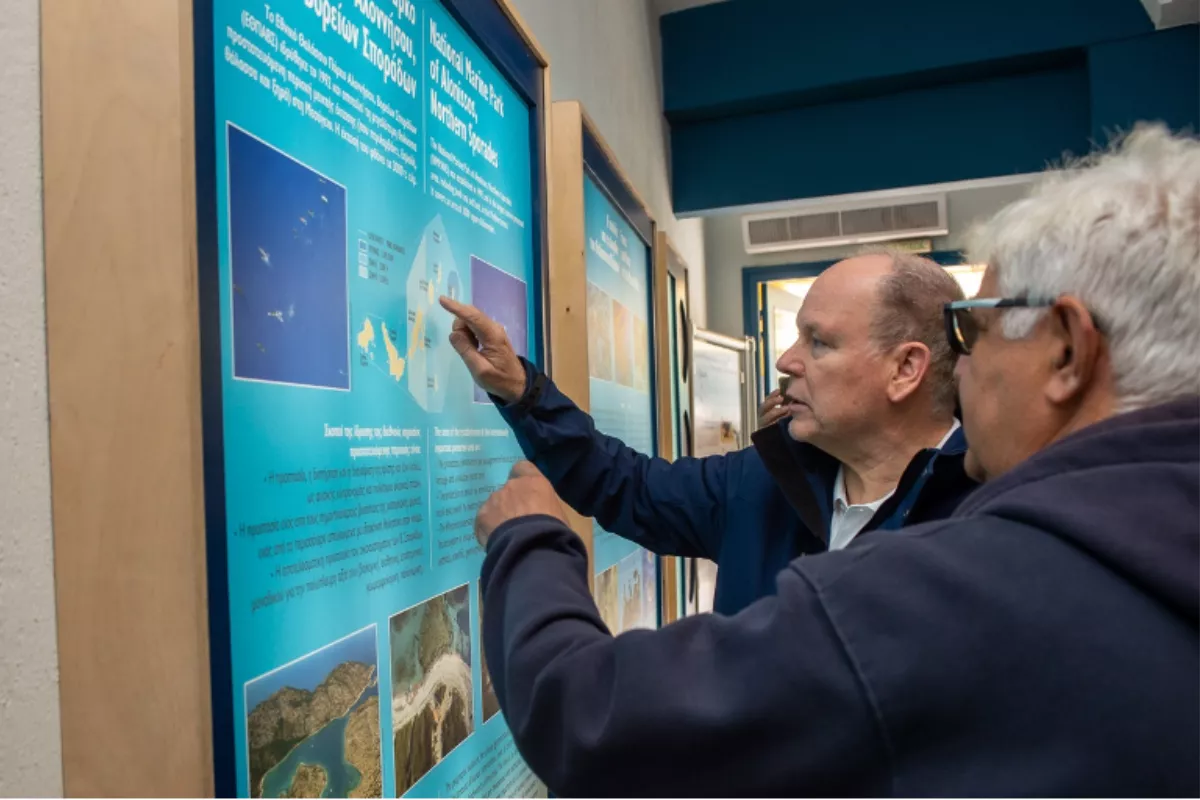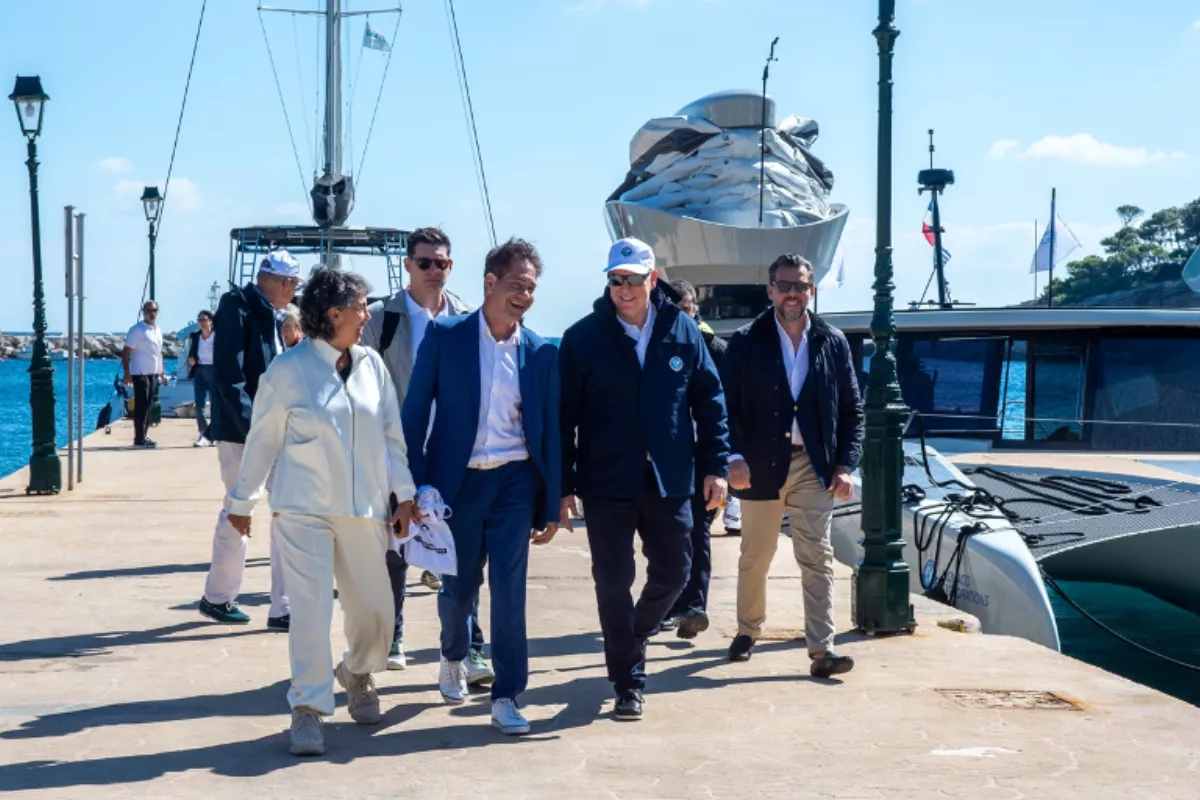Prince Albert II has travelled to the Sporades archipelago in the Aegean Sea to witness first hand the conservation efforts protecting the Mediterranean’s rarest marine mammals: the endangered monk seal.
On October 9th, the Prince visited the Alonissos National Marine Park, Europe’s largest protected marine area, where he explored underwater caves known to harbour the critically threatened Mediterranean monk seal (Monachus monachus). The visit marks a significant moment in Monaco’s long standing commitment to preserving Mediterranean marine life.
“You can only protect what you know,” Prince Albert II said, outlining the importance of direct observation and understanding of species and their habitats. “By respecting living creatures and their living spaces, we manage to preserve them better.”
The visit took place aboard vessels provided by Greece’s Natural Environment and Climate Change Agency, to reach the island of Skopelos, where he personally explored the famous caves that shelter the monk seals. He later returned to the MODX 70-01, the support vessel for Monaco Explorations’ current mission, before travelling to Alonissos island.

The monk seal represents one of the Mediterranean’s greatest conversation challenges. The species is critically threatened, with the population severely impacted by habitat loss, fishing entanglement, and human disturbance.
On its part, Monaco’s involvement in protecting the species stretches back years. The Prince Albert II of Monaco Foundation has long supported the Monk Seal Alliance, which works to protect the seals and their habitats across the Mediterranean.
Building bridges between science and protection
During his time in Alonissos, Prince Albert II met with park rangers, local researchers, conservation associations and fishermen working to safeguard marine wildlife and promote responsible fishing practices. Among those present were representatives from Greece’s environment ministry and the Thalassa Foundation.
The visit forms part of the broader ‘Mediterranean Missions’ launched by Monaco’s Explorations programme in October. This initiative, which runs until 2030, aims to accelerate the protection and effective management of marine protected areas across the Mediterranean. The region, despite covering just 0.8 per cent of the ocean’s surface, is home to 7.5 per cent of the world’s marine species.
More than that, the Mediterranean faces unprecedented challenges. Warming at 20% faster than the global average, the sea suffers from plastic pollution, overfishing, invasive species, and coastal development. Around 58% of the region’s fish stocks are now overfished, threatening both the ecosystem and food safety for local communities.
Yet the region also offers solutions. Marine protected areas, when properly designed and managed, function as sanctuaries for biodiversity and vital tools of climate resilience
Stay updated with Monaco Life: sign up for our free newsletter, catch our podcast on Spotify, and follow us across Facebook, Instagram, LinkedIn, and Tik Tok
Main photo: Prince Albert II with Vera Alexandropoulou, Vice President of the Thalassa Foundation; Petros Varelidis, Secretary General of the Greek Ministry of the Environment; and Vassili G. Apostolopoulos, Consul of Monaco in Greece, at the port of Patitiri, Alonissos. Source: Monaco Explorations.
